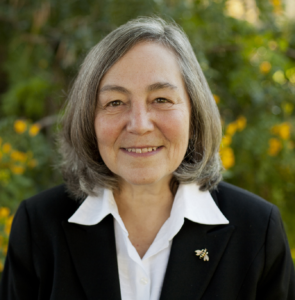 The Choosing Wisely campaign emerged in the United States with the intention of galvanizing physicians to reduce unnecessary care. While excess care is costly, physician leadership on this problem through Choosing Wisely is not focused on dollars and cents. Rather, the campaign is focused on providing quality care and avoiding any harms associated with overdiagnosis and overtreatment.
The Choosing Wisely campaign emerged in the United States with the intention of galvanizing physicians to reduce unnecessary care. While excess care is costly, physician leadership on this problem through Choosing Wisely is not focused on dollars and cents. Rather, the campaign is focused on providing quality care and avoiding any harms associated with overdiagnosis and overtreatment.
Yet the problem of unnecessary care is not a uniquely American one—overuse is a challenge that plagues healthcare systems worldwide, and the message of Choosing Wisely has resonated far beyond America’s borders. In the past six months alone, campaigns have launched in England, Japan, Israel, New Zealand, and Wales—adding to the already active campaigns in Australia, Brazil, Canada, France, Italy, the Netherlands, and Switzerland. Many other countries are also planning to launch national campaigns.
Why has there been such rapid growth of the initiative worldwide? I think that this is partly because the campaign is rooted in professionalism. Some may criticise Choosing Wisely for being naïve in tackling a problem as complex as unnecessary care with professionalism, but as has been pointed out in this journal, that is akin to saying that the Hippocratic oath is also idealistic and naïve.
Maintaining professionalism is challenging in the current healthcare environment. Regulatory and political pressures from healthcare systems, insurers, government, and payers can chip away at professionalism, and pull physicians’ primary focus away from patients. A recent study of American physicians found that during the office day, physicians spent just a quarter of their time in direct face to face contact with patients, while about half of their time was spent on electronic health record (EHR) and desk work.
It should not come as a surprise then that in this environment of limited time and limited physician-patient interactions, overtesting and overinvestigation persists. Indeed, when asked about the barriers to reducing unnecessary care, physicians commonly cite a lack of time for shared decision making as one of the main obstacles. Choosing Wisely campaigns around the world have consequently focused on the conversation between physicians and patients as a lever to reduce unnecessary care. This approach has been criticised by some for not tackling the broader drivers of overuse, such as payment systems, and for not targeting utilisation as the main outcome.
However, these conversations are a starting point, which is rooted in the daily work of physicians and their interactions with patients. In fact, more mature campaigns are seeing progress on identified shortcomings. In Canada, for example, there is a growing body of evidence of successful, local implementation of Choosing Wisely recommendations, which has been led by clinicians. Canada’s next steps include strategies to scale up local implementation and to measure outcomes.
Collaboration with the Organization for Economic Cooperation and Development (OECD) has led to the introduction of three indicators of overuse (the overall number of antibiotic prescriptions, prescriptions for long acting benzodiazepine, and CT exams), which align with Choosing Wisely recommendations across 15 countries, in the OECD Health at a Glance report. Evidence of variation across countries in their use of tests and procedures supports the need for implementation of the campaign’s recommendations.
Governments are applying a wide range of regulatory and financial incentives (or sanctions) to improve value and reduce unnecessary care. These top-down approaches have led to some modest successes, however, they also add to the other system pressures that physicians face. While valuable, government efforts on this are best met with the bottom-up physician engagement and leadership already seen in Choosing Wisely campaigns.
In spite of a heterogeneity of country contexts, Choosing Wisely campaigns are emerging as a means for the profession to lead on combating unnecessary care through conversations with patients.
Wendy Levinson is a professor of medicine at the University of Toronto and chair of Choosing Wisely Canada.
Competing interests: I have read and understood BMJ policy on declaration of interests and declare the following interests: Wendy Levinson is chair of Choosing Wisely Canada.
Contributorship statement: The author would like to thank Dr Karen Born and Dr Sacha Bhatia for their assistance with this manuscript.
